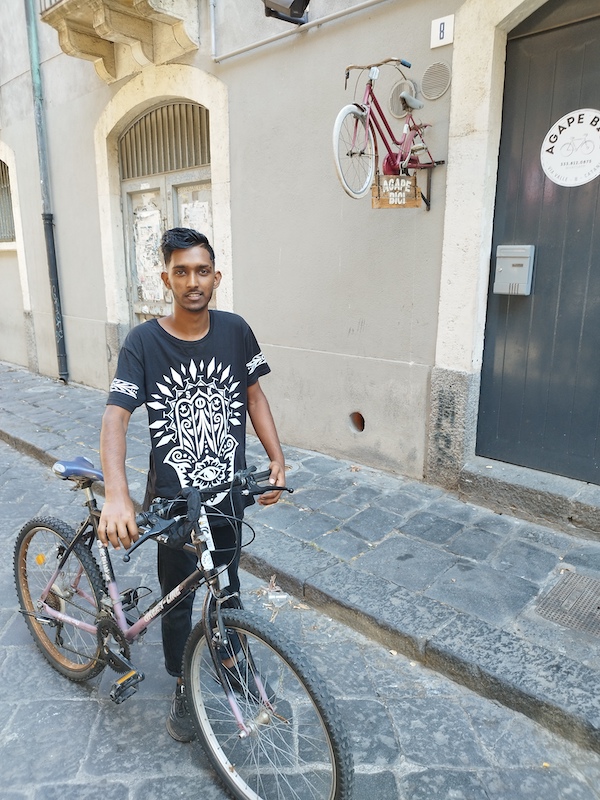Have you ever met someone in a public place and they needed some information, maybe the location of an item within the store, or directions to the post office, but they barely spoke your language? Or maybe they didn’t speak your language at all? You really wanted to help them because you can imagine how difficult it must be to live in a country without speaking the language. So you patiently attempted to share your knowledge in order to help them. You spoke slowly, tried to use simple words, used lots of hand gestures, and maybe even ended up drawing a picture or a map. Has this happened to you?
Now imagine that this person is asking you a different question. Imagine they are asking you, “How did Jesus die?” Or, “Who killed Jesus?” Or, “Why do followers of Jesus call Him the Son of God?” Can you imagine how many hand gestures and drawings you would use to answer these?
This is the way I often feel during our Bible studies with the migrants here in Sicily. When possible, we have the person we are studying with read or listen to the Bible in their mother tongue, the language they first learned. Then we discuss it in whatever language we have in common. Some of the most heard phrases are, “Sorry, I don’t understand,” and “Let me explain it another way.” I’ll give you a couple examples of how this works.
Bangladesh
We’ve been studying with a non-Christian man from Bangladesh for quite a while. This is how we study. First he reads the Bible passage in Bangla and then translates what he read aloud in English. We often do this one or two verses at a time to ensure he is understanding the meaning of all the words. After he reads the entire section we discuss it in a mixture of English and Italian. When meeting at the Help Center, we always have a whiteboard or notebook handy to draw the story so that we can refer back to it during the discussion, which can take hours.
Senegal
Another man we study with is a non-believer from Senegal. This study group also includes a Gambian, an Italian, and two Americans, who are all believers. The man from Senegal speaks Italian and Wolof, his mother tongue. So when studying with him, we play an audio recording of a chapter of the Bible in Wolof (which the Gambian speaks also) while everyone else reads to themselves in their mother tongue. Then we discuss the chapter in Italian and use whiteboard drawings. Another challenge is that the only recordings available in Wolof are of Genesis and the four Gospels, which limits what stories we study.
And many more…
There are other combinations, too. There is a man from Cuba who reads the Bible in Spanish, a man from Mali who listens to it in Mandinka, and also groups of Italians. It’s never boring trying to discover the best way to study with the people we meet here. As I was thinking about the diversity of the people with whom we study, it made me think of this passage from Revelation:
“After this I looked, and there before me was a great multitude that no one could count, from every nation, tribe, people and language, standing before the throne and before the Lamb.”
Revelation 7:9
One of the things that drew us to this ministry in Sicily is the way God is moving people from so many nations to this place. It is exciting to now see God connecting us with these people and to have the opportunity to share His Word with them.
It is such an honor to serve our Almighty God in this way – to be a small part of His plan to redeem people from every tribe and language and people and nation. You also are working as part of His plan as you pray for and partner with us in the work He is doing here. Thank you for working alongside us.








